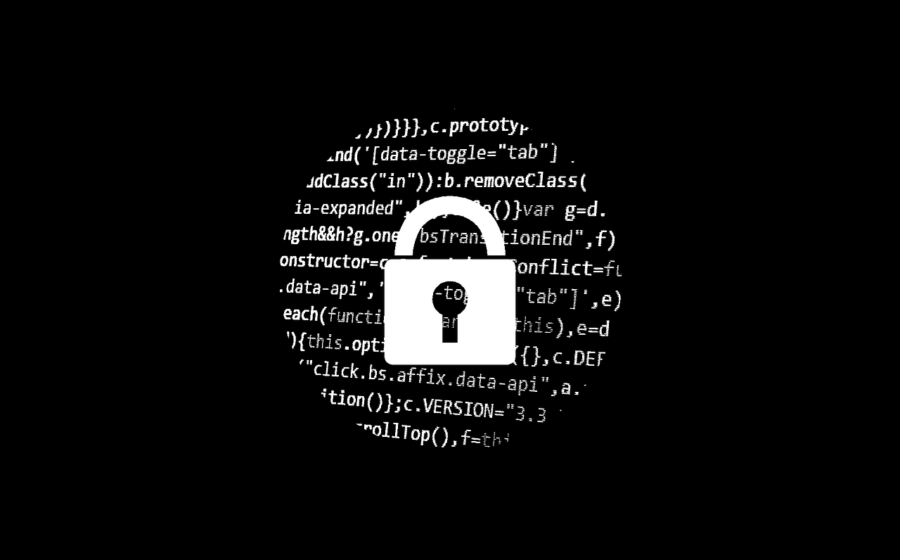Identity Tips from A San Rafael Tax Professional
When people think about identity theft, they generally don’t consider their taxes as the culprit. Let’s assume you’re just an everyday person — a local resident in San Rafael, like me, working hard for your family. Doing your taxes are a means to an end, not a vulnerability. In that case, you probably associate identity theft risks with things like credit card fraud, scam websites and emails that phish for your identity, having your password hacked. Those types of risks are commonly discussed, along with methods for protecting yourself.
Thus, a local Marin resident like yourself probably just thinks about taxes when you’re dropping off your returns at my San Rafael BOOKS IN BALANCE office for processing once a year. You’re not considering that taxes might actually be a way to steal your identity. In fact, particularly for business owners, this is a growing threat.

Why Steal Identities Through Taxes?
Stealing your account passwords or credit card information makes sense as a vulnerability — after all, that usually gives the thieves a simple way of transferring funds or purchasing with your money/credit. Using your taxes may feel counterintuitive (who wants more paperwork?) but once you dig a little deeper, the strategy behind it is logical for criminals. It’s a way for them to take what’s not theirs.
In general, stealing someone’s identity through your tax returns gives someone the means to file under your Social Security number. This false filing then puts the return into the bank account of the thief. This also throws your own records out of whack in a number of ways:
● It may create false deficits for your records.
● It will generate the issue of filing multiple times in a single year.
● It can offset the total of recorded income, thus depriving you of a proper return.
In short, it takes your records and sticks them into a blender, leaving you to sort out the mess while allowing the culprit to take the money transmitted into their account and be done with it. Tax identity theft is particularly troublesome for business owners when many different variables are involved in a complicated return (multiple income streams, expenses, materials, employees, transportation, etc.). When weighing so many inputs and outputs, unlike a straightforward single-person or couple filing with few deductions, it’s much easier for fraud to get buried.
A few years back, the IRS began noting the growth of fraud cases such as this. One of its moves to protect the public was by partnering with tax software developers such as Quicken and Intuit to establish greater levels of identity verification. The method used by criminals to get identities — basically, Social Security numbers — ranges widely based on circumstance. Many of the criminals involved are simply taking advantage of easy access. Forbes documented ten different ways identities were stolen for tax fraud purposes, and it included:
● A hospital customer service representative taking 400 Social Security numbers from customers.
● A data-entry clerk at an IRS office lifted the numbers from paper submissions prior to entering them.
● A man who physically broke into a CPA’s office to steal identity data.
● A customer service rep at a bank in taking student-loan data.
Ways to Protect Your Identity
Protecting your Social Security number is extremely critical, and not just for filing your taxes. Your Social Security number is linked with so many important aspects of your identity, and a breach in that exposes you to many unsavory elements. While there’s no foolproof plan that can protect everything — for example, no one could have foreseen the office break-in detailed above — there are a number of common sense methods to greatly reduce your overall risk.
Online Security Software: As the world becomes more and more interconnected, devices and applications represent many opportunities for stealing identity. An industry-standard suite of security software will be your best defense as a combination of firewall and anti-virus protection. Make sure these stay up to date.
Smart Passwords: Password mistakes are still common, even in 2017. Things like using default usernames, having simple passwords, or using the same password repeatedly all expose your private information to the world. Follow password best practices such as using a different one for every site, and use online password generators to ensure that all of your data is protected behind a strong password.
Don’t Go Phishing: Phishing scams, or fake emails and web pages that trick you into downloading malicious data miners onto your computer, get more clever each and every year. To avoid these, it’s important to recognize the most common ploys used by hackers to retrieve this information.
Real-World Protection: The real world still makes your data vulnerable as well. If you’re using a public system, remember to log out of your identity. Don’t carry your Social Security card in your wallet, and don’t relay that information over the phone in a public place. Be smart about any documents you carry that contain sensitive information, and if you have any concerns about people processing your information, simply ask their supervisor.

What If You’ve Been Victimized?
If you’ve discovered that you’re the victim of identity theft via your tax returns — or if you’ve got good reason to suspect it — don’t panic; the IRS understands that these types of things happen and there are protocols and support staff in place to address the situation.
If the IRS has notified you, respond immediately. This is one of those things that can only get more complicated the longer you wait, so make it your top priority and call the number provided with the notice. At the same time, you can get a head start by completing IRS Form 14039 (Identity Theft Affidavit). You should do this even if you haven’t received anything official from the IRS upon discovering evidence of a duplicate filing under your Social Security number.
Form 14039 should be mailed to the IRS with a copy of your Social Security card and any form of government-issue identification. The IRS also has a website for its Identity Verification Service that can help you reclaim your identity. The IRS takes identity theft seriously and their department for this can be reached at 1-800-908-4490 if you’re hitting dead ends.
Outside of tax-specific issues, identity theft can leave a wide footprint on your finances and credit. You should file a complaint with the FTC to get the ball rolling immediately. You can also notify the major credit bureaus, as they will tag your account with a fraud alert to limit the impact of fraudulent transactions. Also, contact any financial institution where you hold an account — everything from checking accounts to credit cards to student loans to college savings funds. Anything that may be associated with your Social Security number and other private information is at risk, so be proactive
Identity theft is a growing concern in the digital age, and it will take a combination of practical and online security methods to minimize your risks. Even then, it’s still possible to be the victim of it. By reading up on IRS and FTC protocols for addressing this, as well as warning signs, you’re already ahead of the game. While you’ll hopefully never put this knowledge to use, “be prepared” is more than just advice I give my clients at my San Rafael tax office — it’s a philosophy I recommend for just about everything in life.
- Preparing Your Tax Documents - February 1, 2024
- Making of a Successful Team Environment - December 31, 2023
- Got a Mistake on Your Tax Returns? - September 3, 2023

